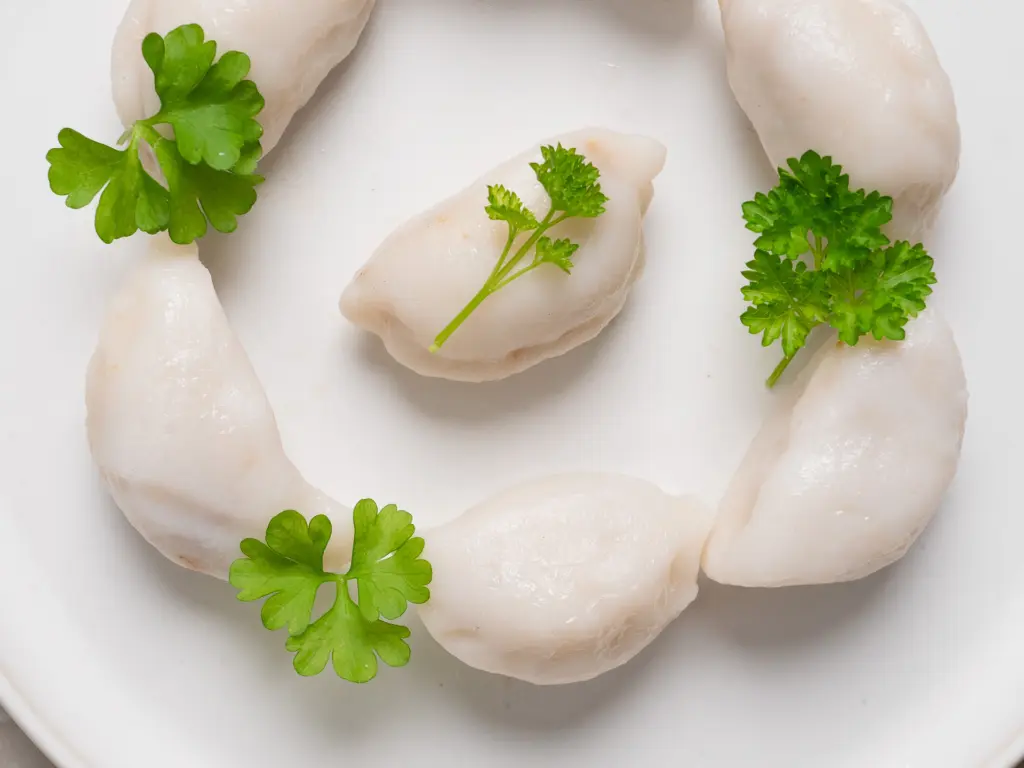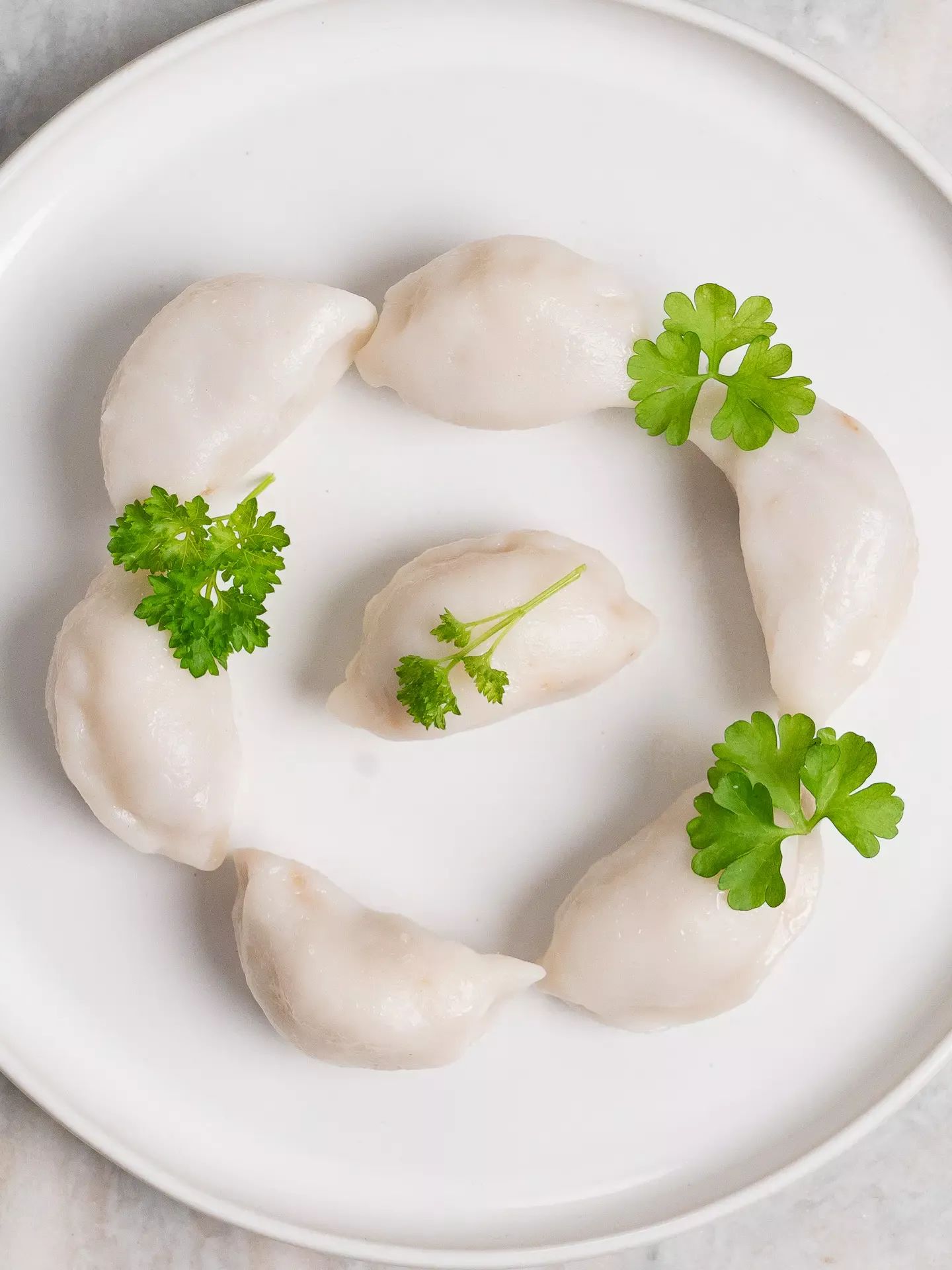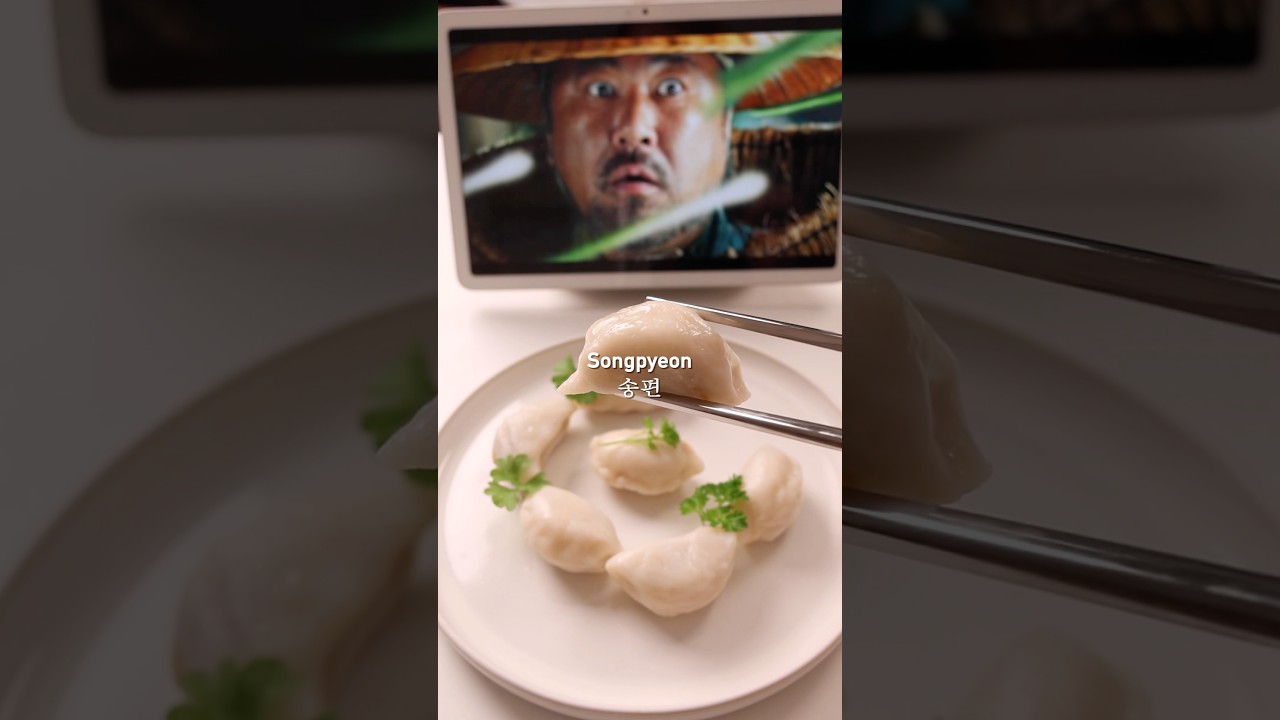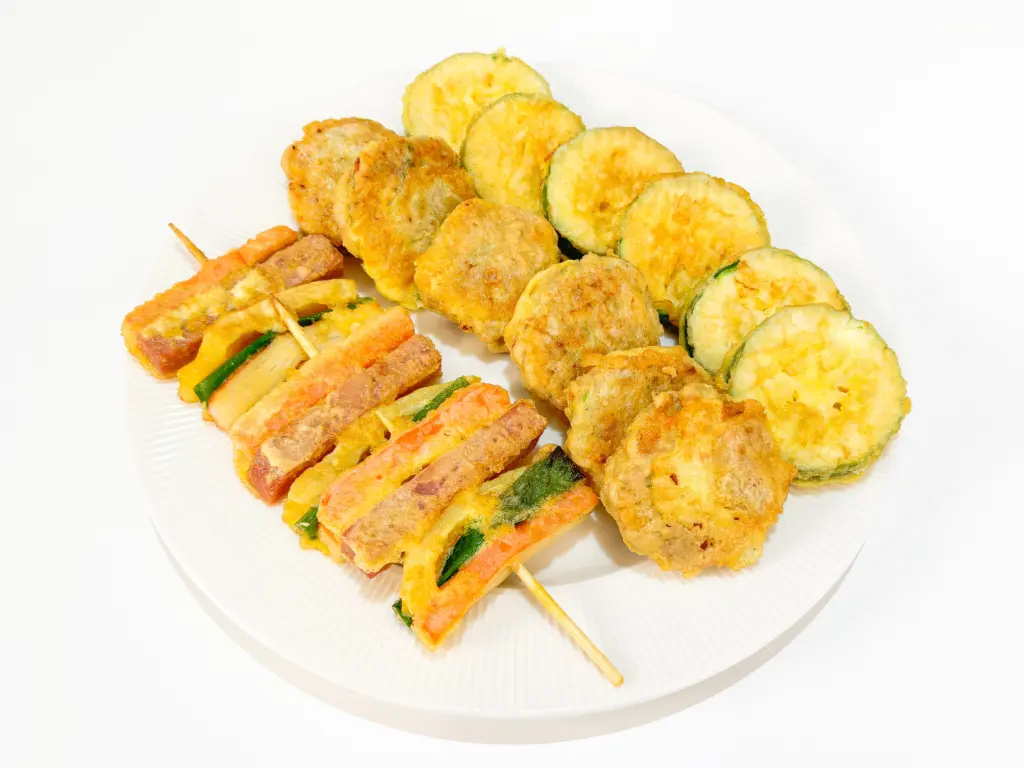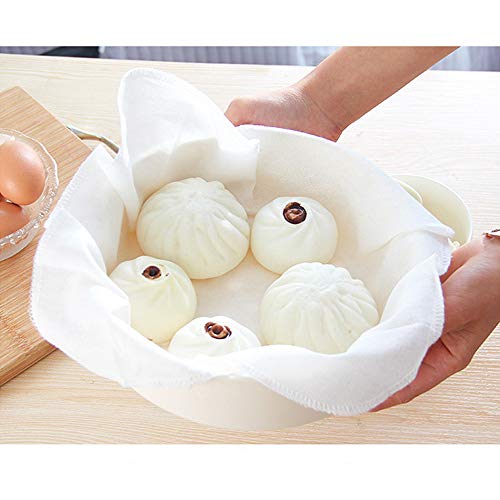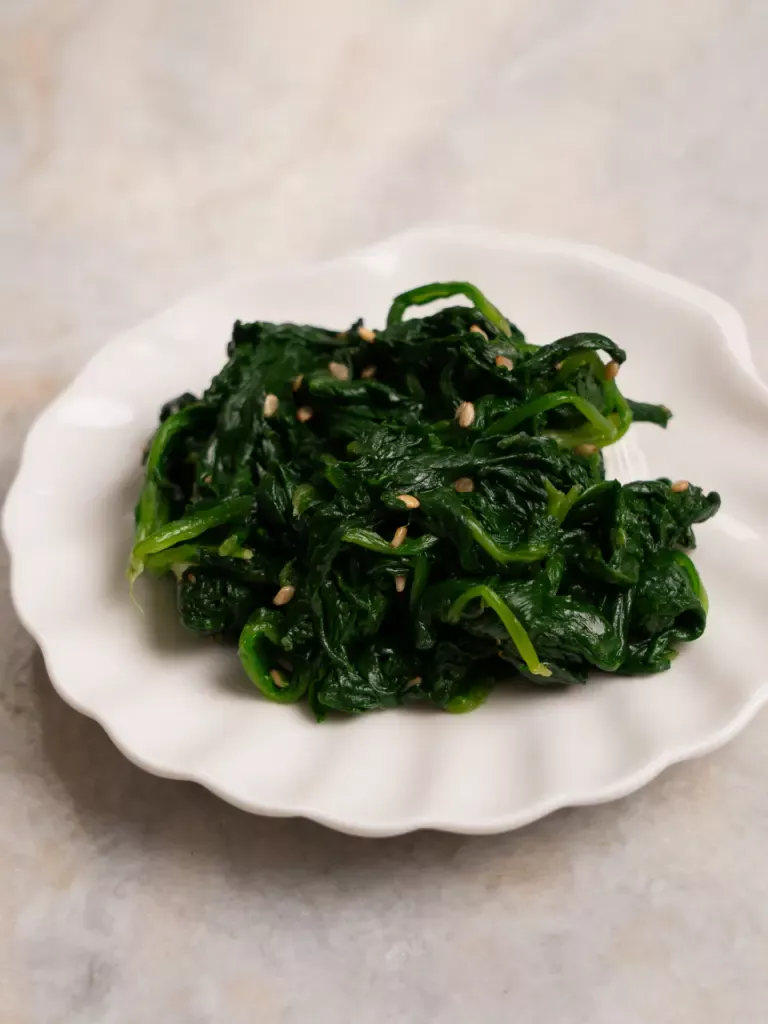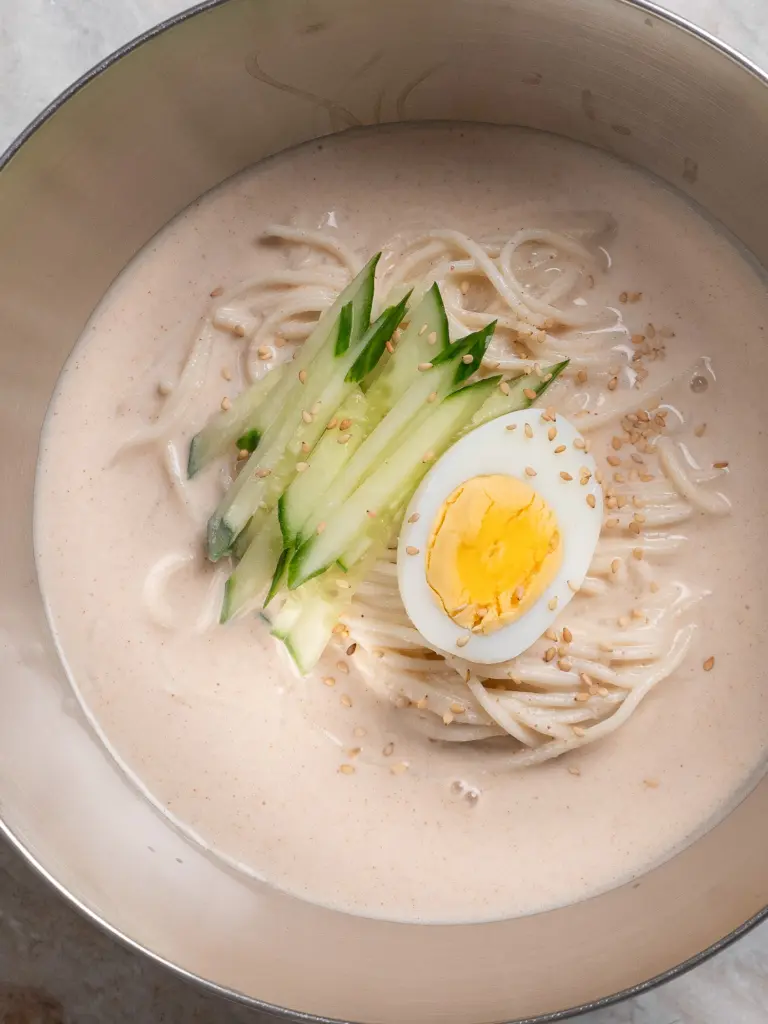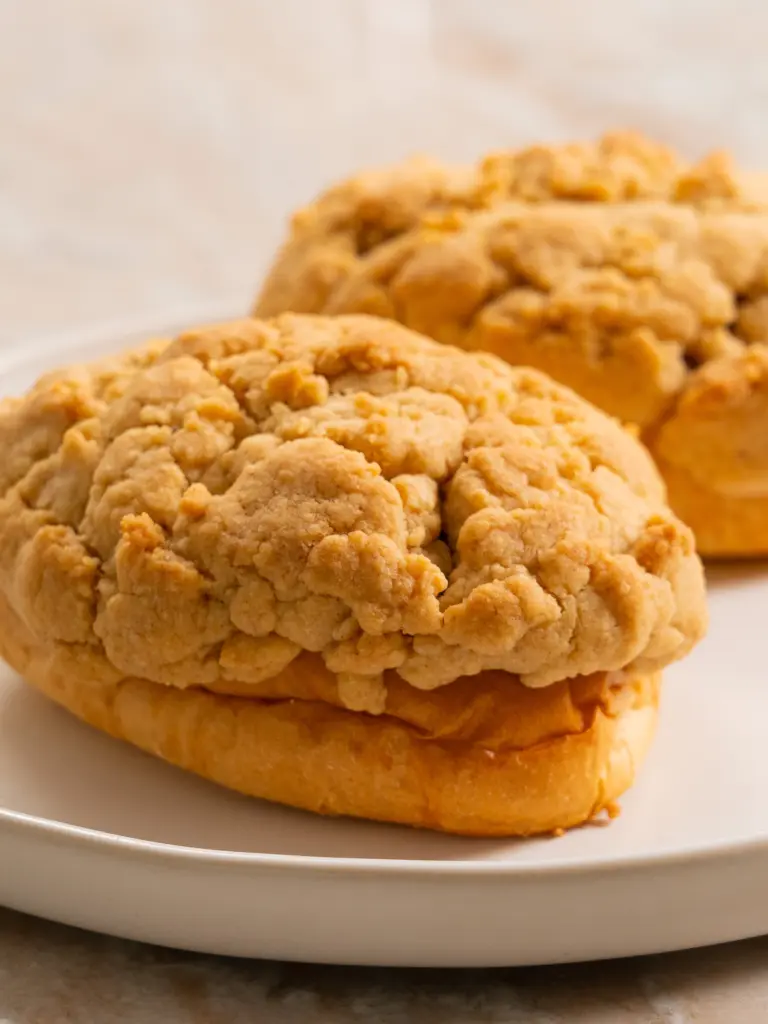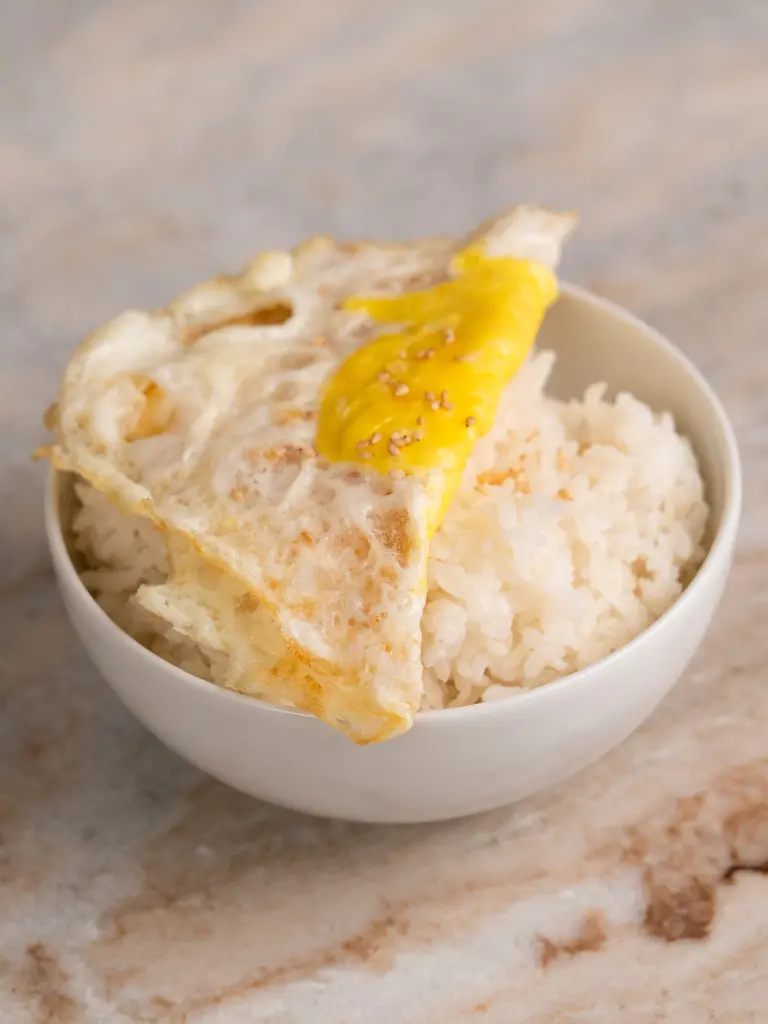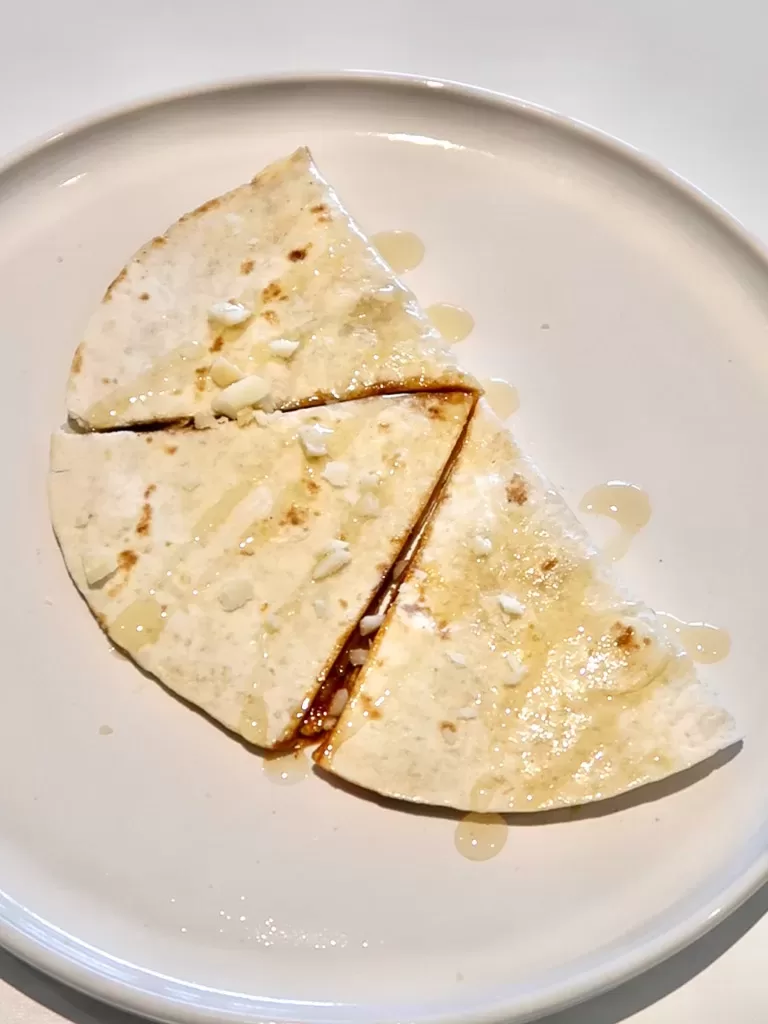Chuseok Tteok: Easy Songpyeon Korean Rice Cake
Songpyeon is a Korean tteok made especially for Chuseok. My grandmother used to run a Korean rice cake shop, and every Chuseok she would make it by hand. Of course, I joined her and naturally learned how to make it. Even if you are not in Korea, I’ll share an easy songpyeon recipe so you can enjoy this special Chuseok rice cake at home.
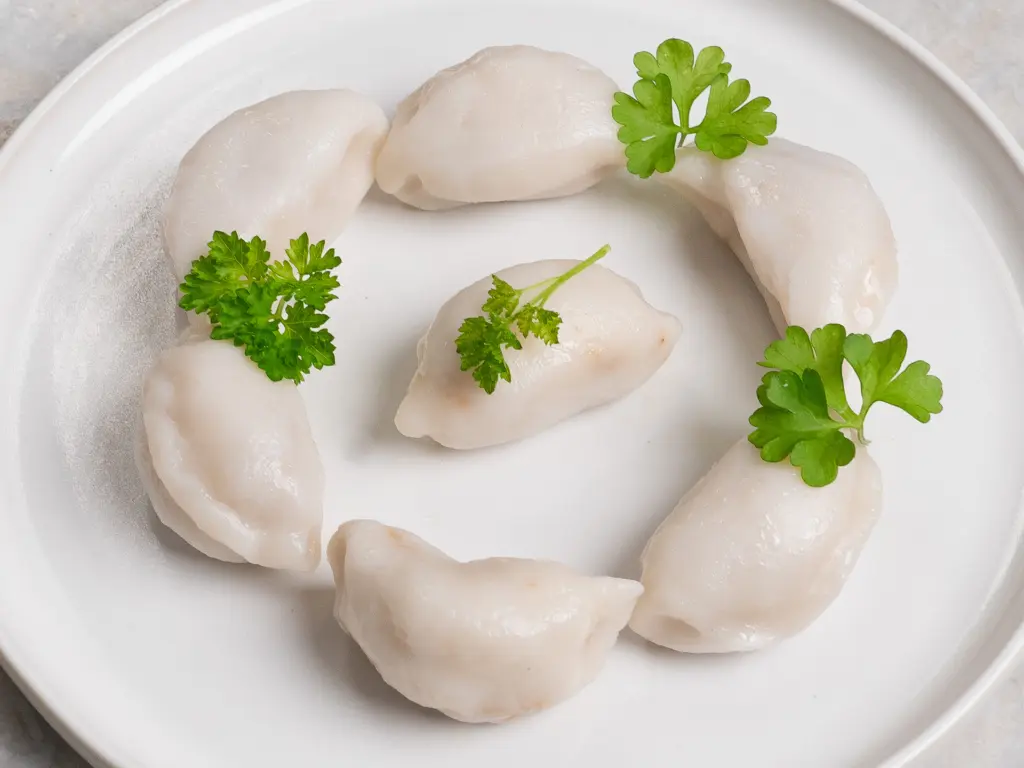
What is Songpyeon?
Songpyeon is one of the most iconic Chuseok foods. This traditional Korean rice cake is shaped like a half-moon and filled with beans, red beans, sesame seeds, or other sweet fillings. Unlike other types of rice cake, songpyeon is steamed on pine needles, which give it a fragrant aroma that makes it extra special.
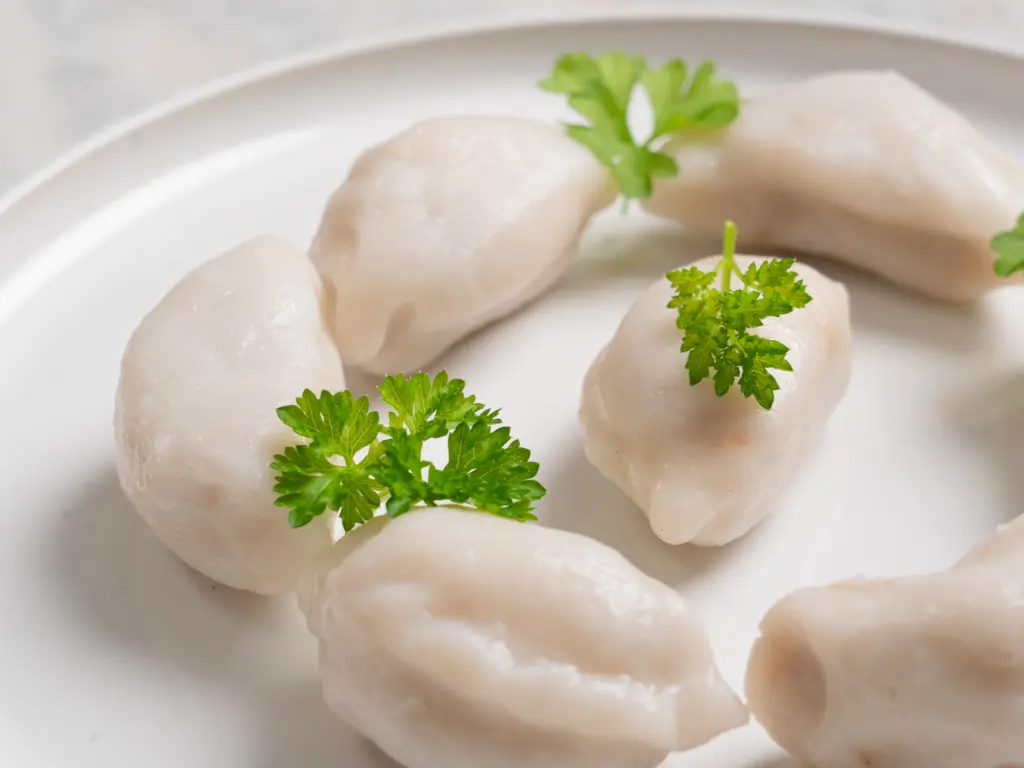
The Meaning of Songpyeon – Why It’s a Symbolic Chuseok Food
Songpyeon is always made in a half-moon shape. On Chuseok, a full harvest moon rises in the sky. Since Chuseok is based on the lunar calendar, we always know that a bright full moon will appear. The half-moon shape reflects the growing moon, symbolizing abundance and prosperity.
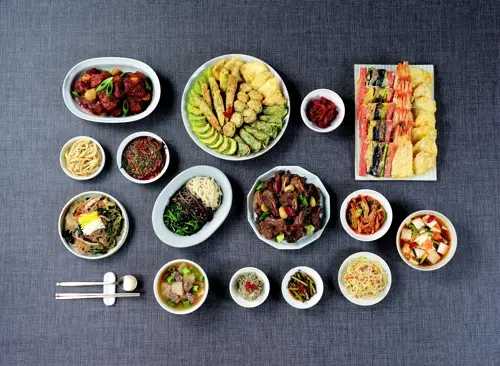
Made with freshly harvested rice, it represents wishes for a good harvest. This rice cake is also offered on the ancestral table (charye) to express gratitude to ancestors. Most importantly, families gather together to make and share the rice cake, which strengthens family harmony and togetherness.
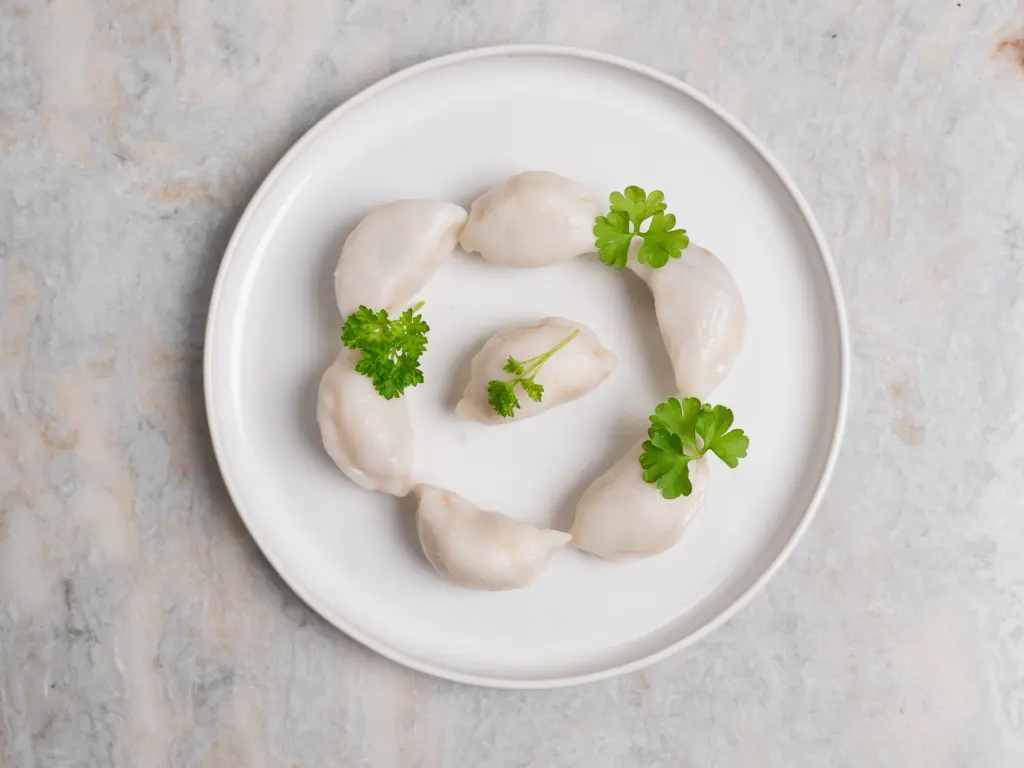
Songpyeon Ingredients and Fillings
Traditional Songpyeon Fillings
- Sesame seeds: Roasted sesame seeds are ground and mixed with sugar and a pinch of salt. This sweet and nutty filling is the most common and also one of the most loved fillings for songpyeon.
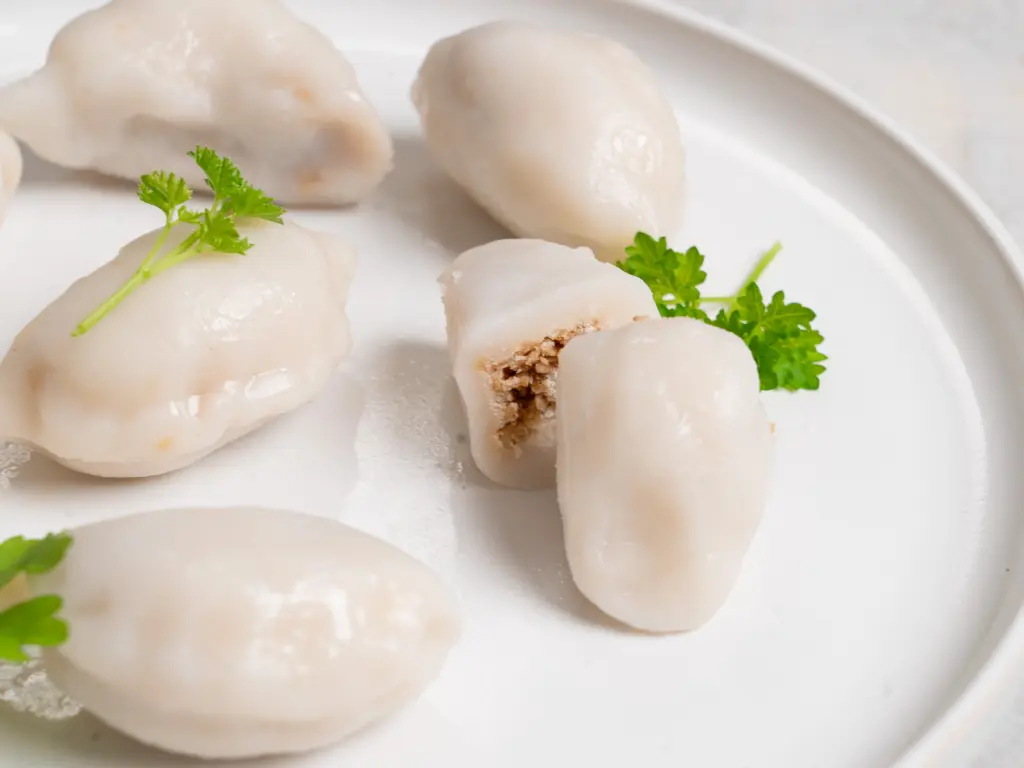
- Beans: Black beans are usually used. They are boiled in salted water and then mashed slightly to mix with the rice dough. This is also a very common filling, but many children dislike it the most. Since songpyeon hides the filling inside, you never know what you’ll get—if you happen to pick a bean filling, you just have to eat it, haha.
- Red beans: Sweet red bean paste is made and used as a filling.
- Chestnuts: Steamed chestnuts are chopped into small pieces and used as filling. They give a nutty flavor with the natural sweetness of chestnuts.
Tips for Choosing the Right Rice Flour
Wet rice flour (습식 쌀가루): In Korea, wet-milled rice flour is commonly used for making Korean rice cake. However, outside Korea, especially in Europe, it’s very difficult to find. In that case, you can use regular rice flour (dry-milled). If you’re not buying from a Korean market, almost all rice flour found in Asian grocery stores is dry-milled. When using dry rice flour, you need to add 0.3 times more water compared to wet rice flour. Today, I used dry rice flour and increased the water accordingly.
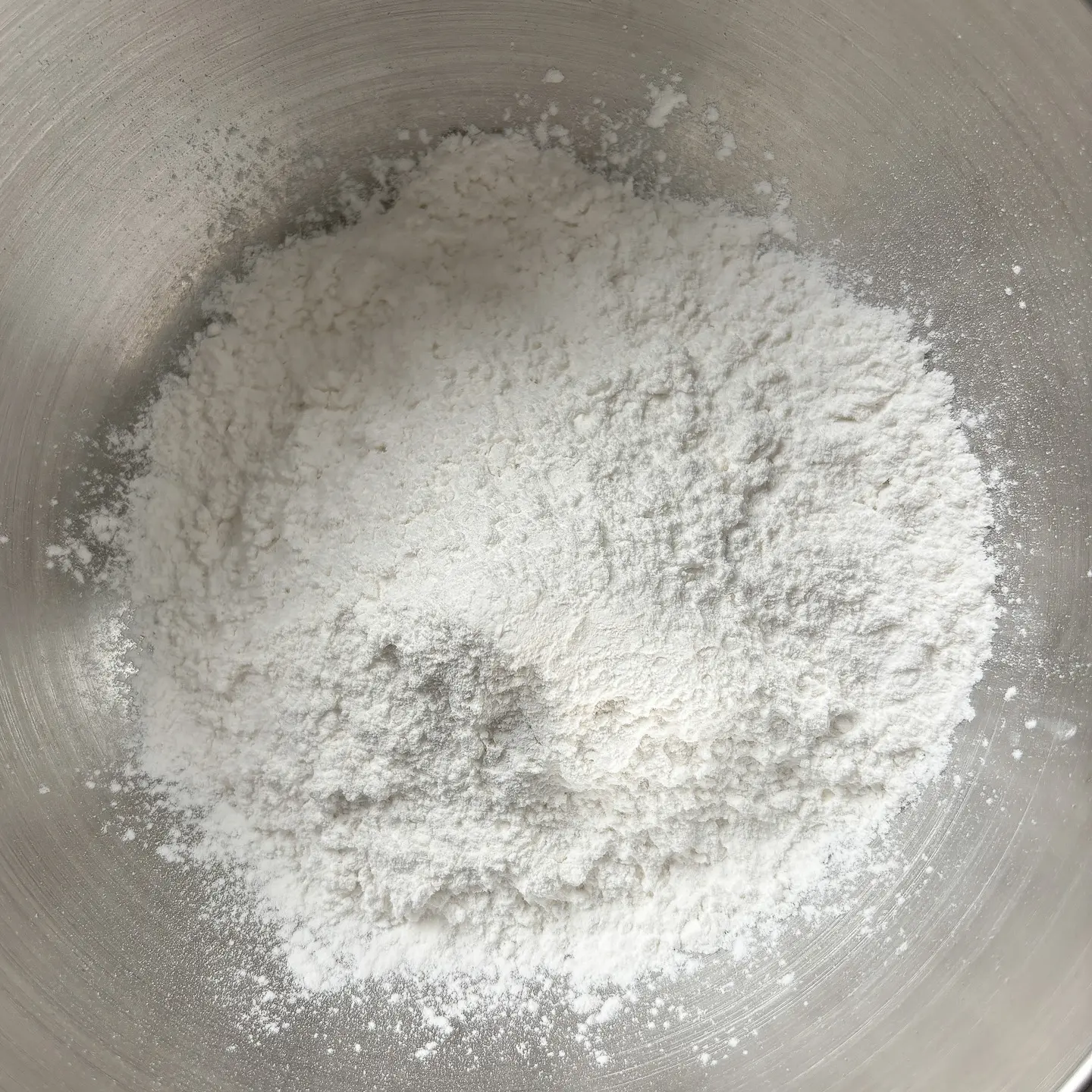
Why Steam Songpyeon on Pine Needles?
- Preventing spoilage: Long ago in Korea, refrigerators were not common. But tteok spoils very easily. Even the next day, rice cakes can go bad. So these days people freeze them and defrost before eating, but in the past, how could they have frozen them? That is why Koreans in the old days steamed it on pine needles.
- Preventing sticking: While steaming, rice cakes stick to the steamer or to each other. These days, many people use a steamer cloth, but in the past, by steaming with pine needles, they prevented the songpyeon from sticking.
- Aroma: The fragrant pine needle scent seeps into the rice cakes and enhances their flavor.
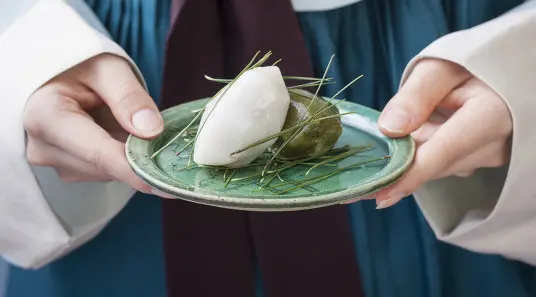
What if you don’t have pine needles?
- Herbs: In Korea, pine trees are everywhere, but outside of Korea such as in Europe, it is difficult to find Korean pine trees. This is different from Christmas tree pines. In that case, you can use herbs like thyme or rosemary instead of pine needles.
- Steamer cloth: Today I used a steamer cloth instead of herbs. This was to prevent the songpyeon from sticking to the steamer. Even if you use a cloth, if you place herbs like rosemary on top of the rice cakes while steaming, the fragrance will seep in and you can make much more flavorful chuseok songpyeon.
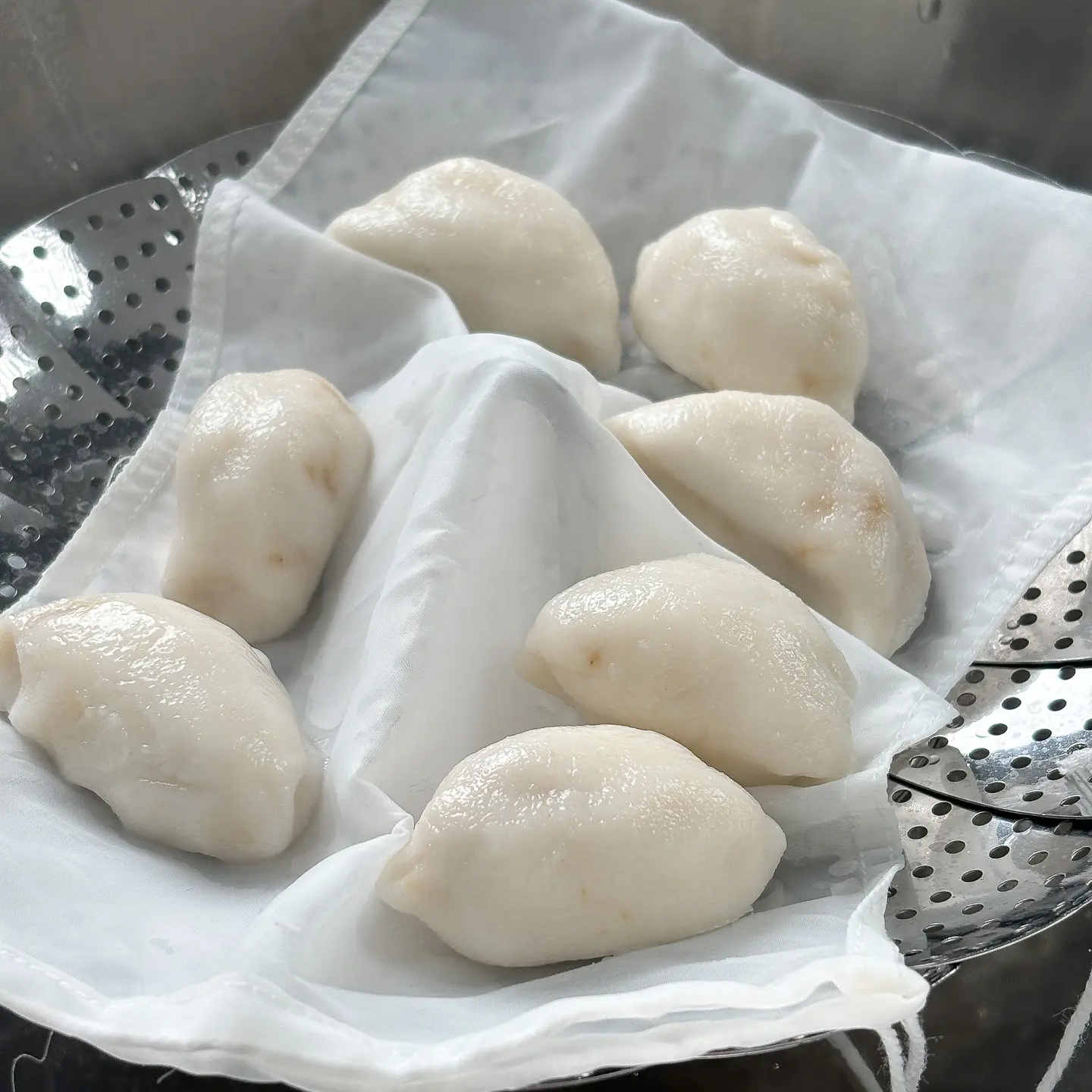
How to Make Songpyeon at Home
Preparing the Dough (Rice Flour & Salt Water)
- Hot water: Always use hot water. If the water is cold, the dough won’t bind properly, and the rice cakes can turn out hard and dry after steaming. Dissolve salt in the hot water to prepare the brine.
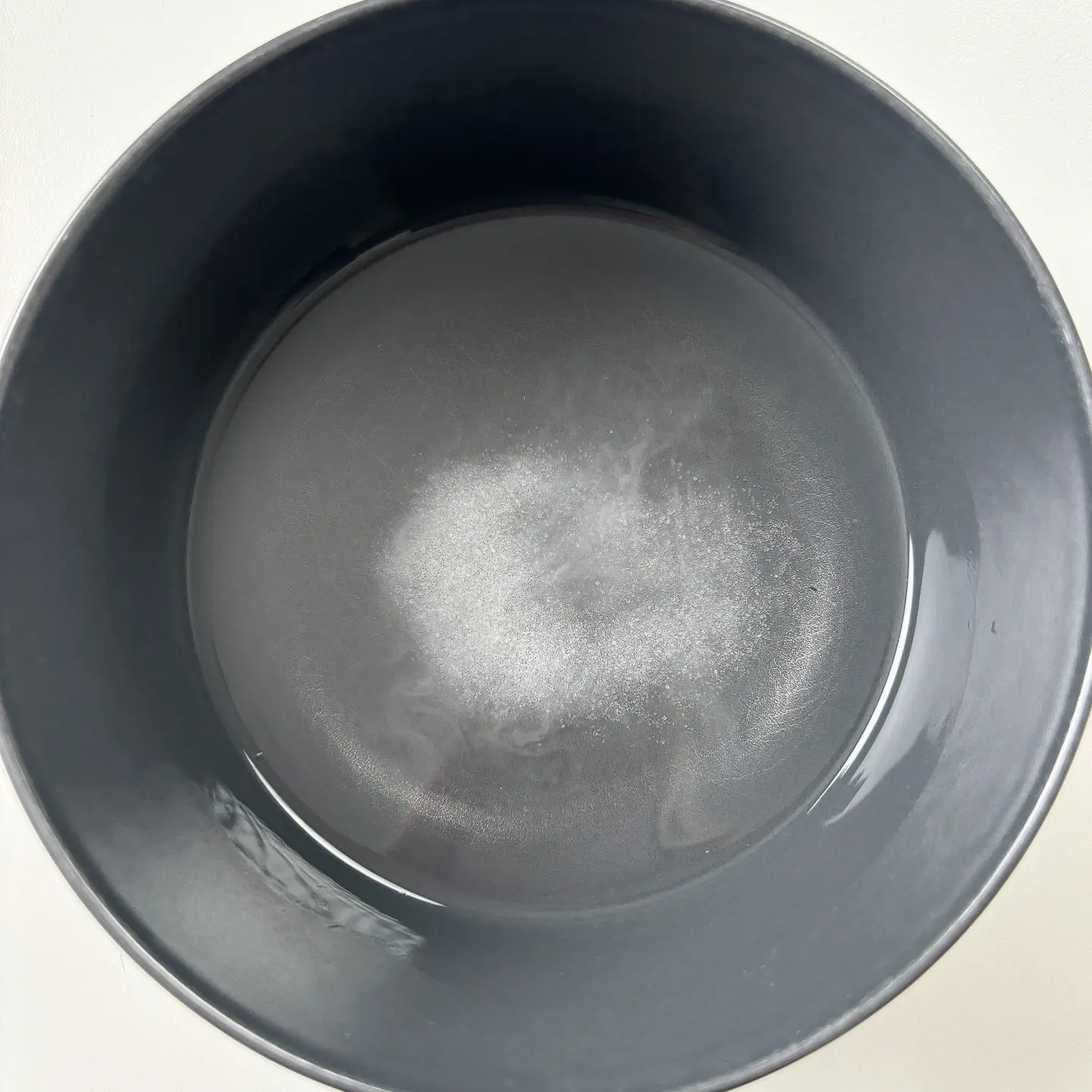
- Kneading: Gradually add the salted hot water into the rice flour. If the dough sticks to your hands, it’s too wet; if it cracks, it’s too dry. The perfect dough should be smooth, pliable, and not sticky. You don’t need to follow the exact water amount in the recipe—adjust as needed. If the dough is too wet, add more rice flour. If it’s too dry, add more salted hot water.
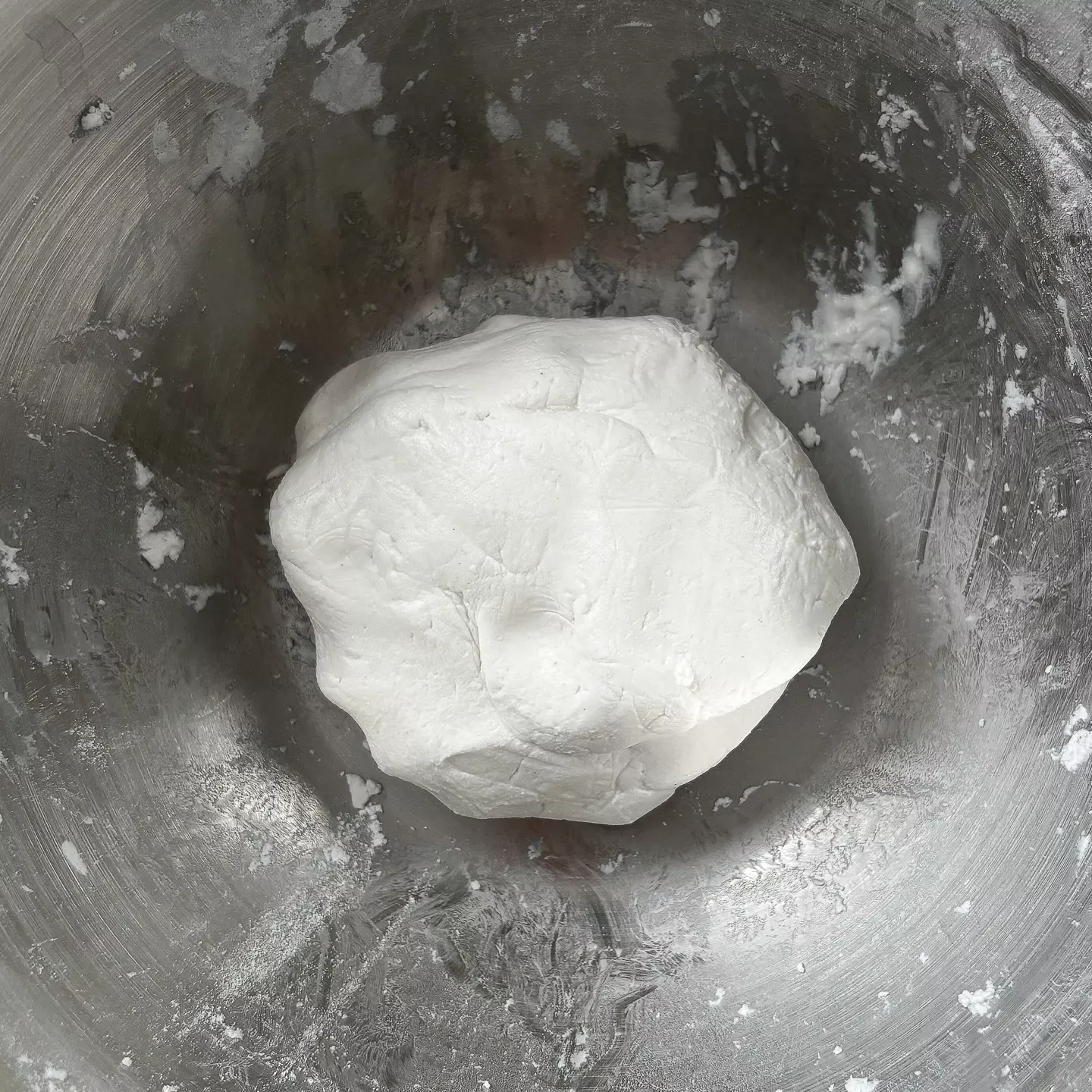
- Resting: Once the dough is ready, place it in a plastic bag and let it rest for 30 minutes.
Making the Filling
- For today’s recipe, I made the most basic filling—sesame filling. Grind roasted sesame seeds finely, then mix with brown sugar and a pinch of salt. This creates a sweet, nutty, and slightly savory flavor. Add a very small amount of water (about 1 tsp to 1/2 tbsp) to help the mixture clump together slightly. Be careful not to add too much water, or the rice cake will turn mushy.
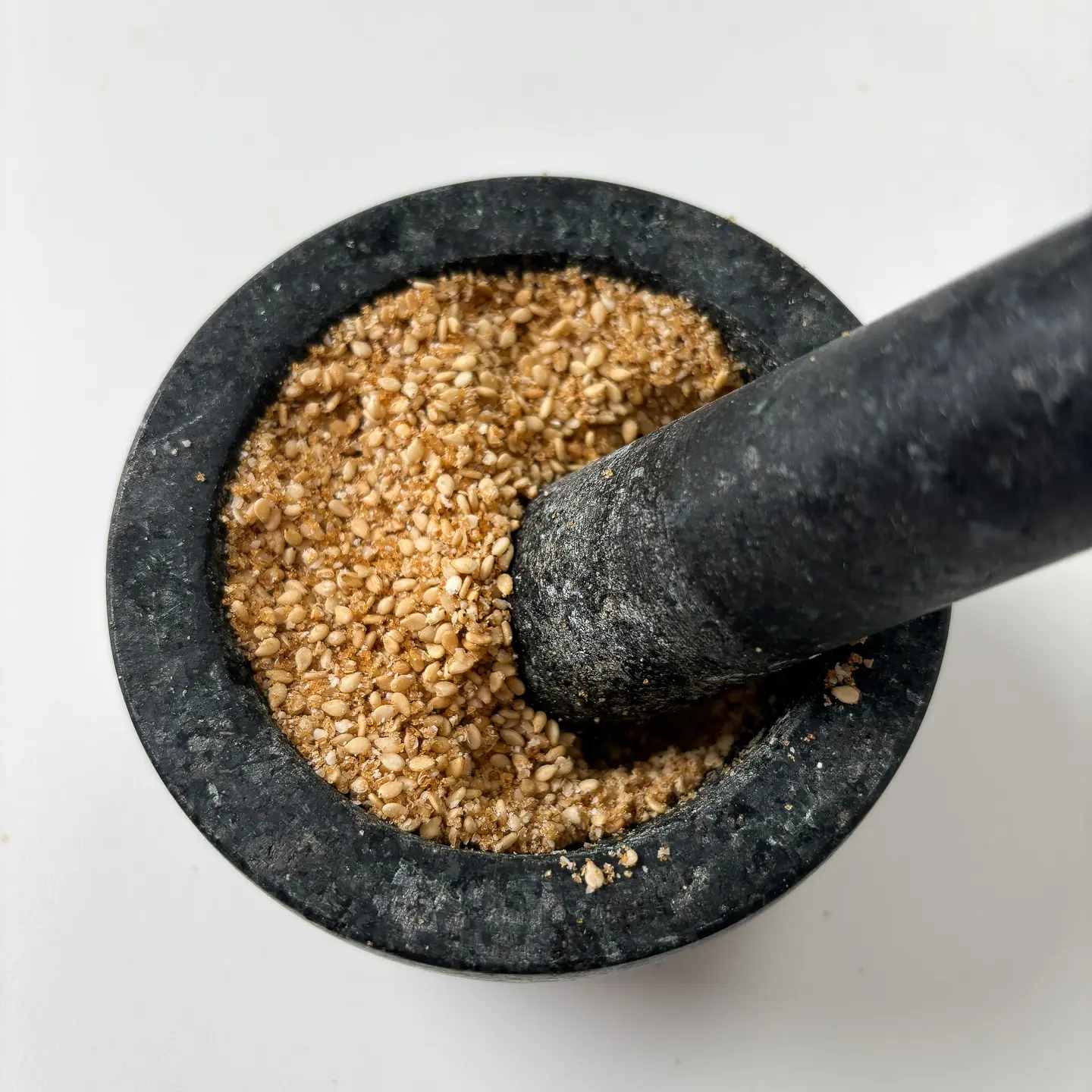
Shaping Half-Moon
- Divide: Take a small piece of dough and roll it into a bite-sized ball.
- Add filling: Flatten the dough, place about 1 tsp of sesame filling in the center, and carefully fold the dough over the filling. Press tightly so that the air escapes, then shape it into an elongated oval, similar to a cocoon. Finally, fold it like a dumpling into the classic half-moon shape.
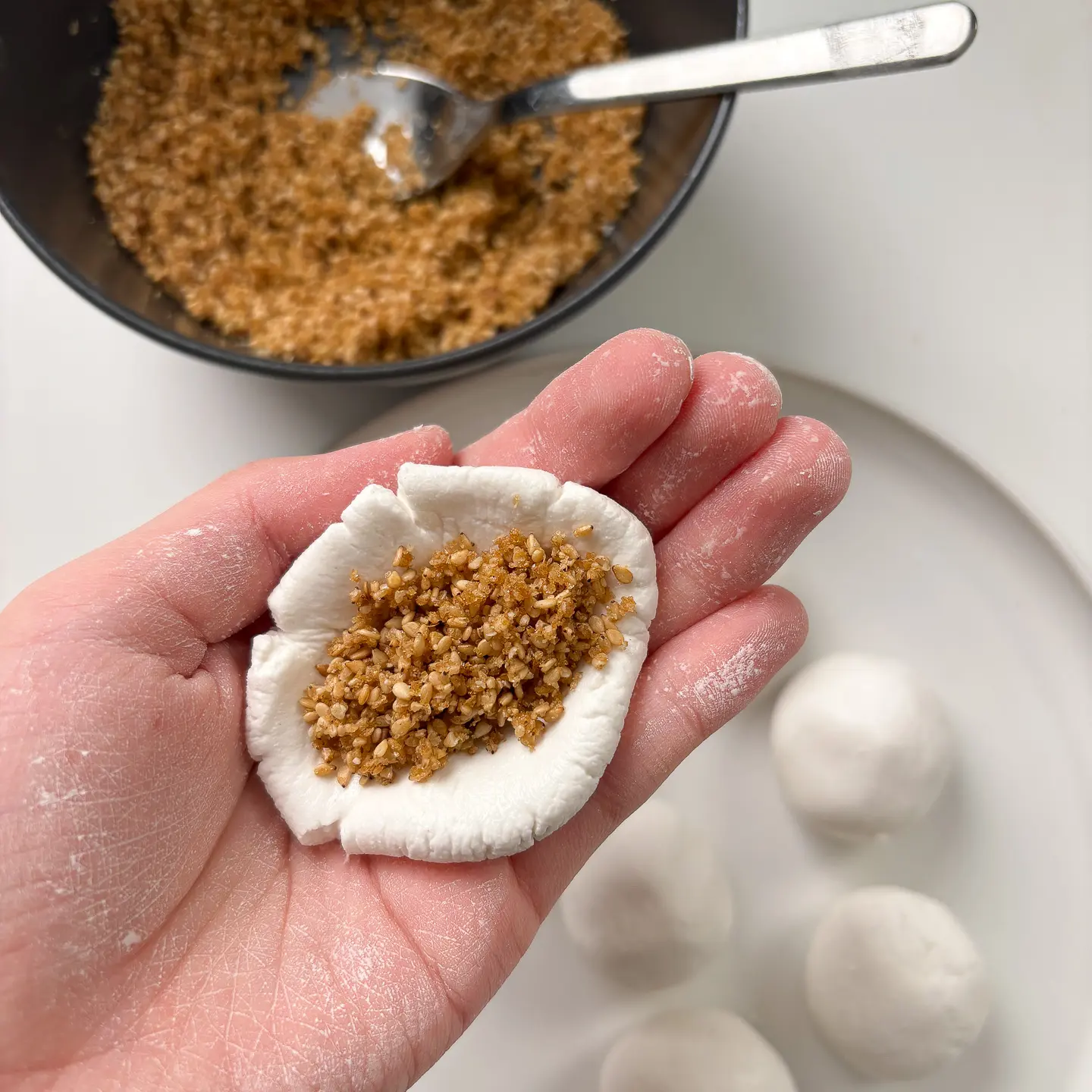
Steaming Rice Cake
- Boil water and place the steamer on top. My grandmother always steamed songpyeon on pine needles, and the fragrance always reminded me of the holidays. As mentioned earlier, pine needles not only add flavor but also prevent the rice cakes from sticking together. If pine needles are not available, you can steam the rice cake on a cloth and place rosemary or other herbs on top.
- Close the lid and steam over medium heat for about 20 minutes. When the rice cakes become slightly translucent, that’s the sign they are fully cooked.
Preventing Sticking and Adding Flavor
- Once the rice cake is steamed, rinse briefly in cold water to improve the chewy texture. Then coat lightly with sesame oil to prevent sticking and add a nutty aroma.
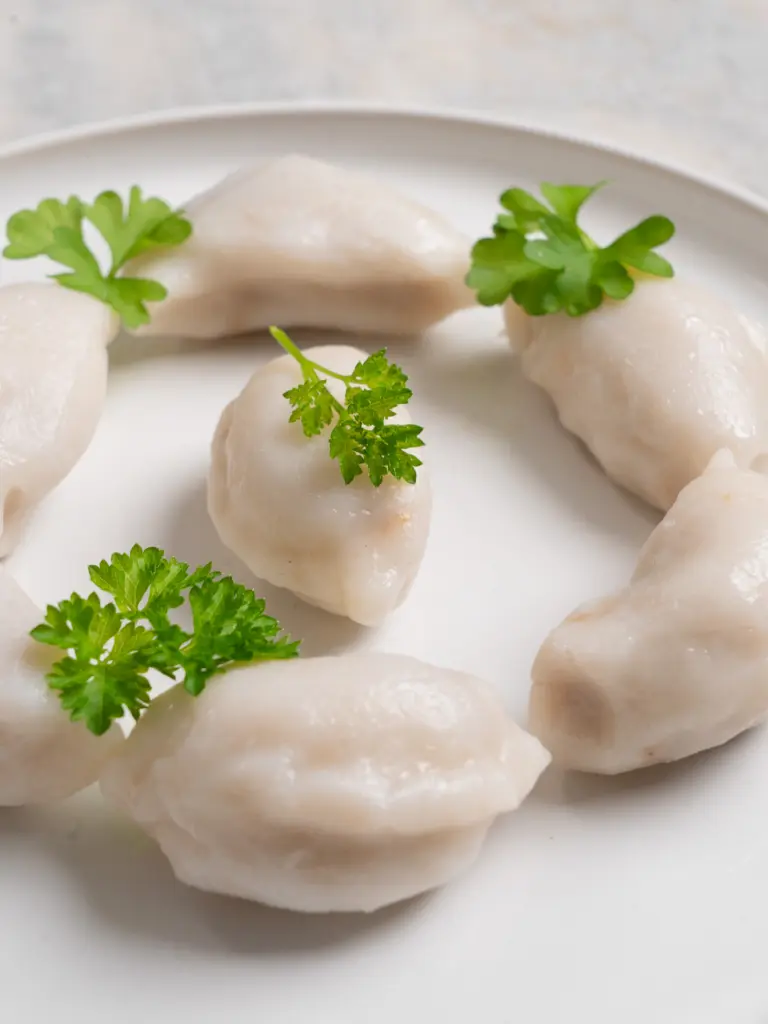
Various Korean Tteok: Do You Think Tteok is Only Tteokbokki?
Topokki is a popular dish made with garae dduk, a type of Korean rice cake that is small and cylindrical. But in Korea, tteok has always been more than just snacks — it has been eaten as both a meal and a snack. Just like France has a wide variety of pastries, Korea has a rich variety of rice cakes.
Here, I’ve selected the 10 best Korean rice cakes. If you’re not sure which Korean rice cake to try, choosing from this list will never disappoint you.
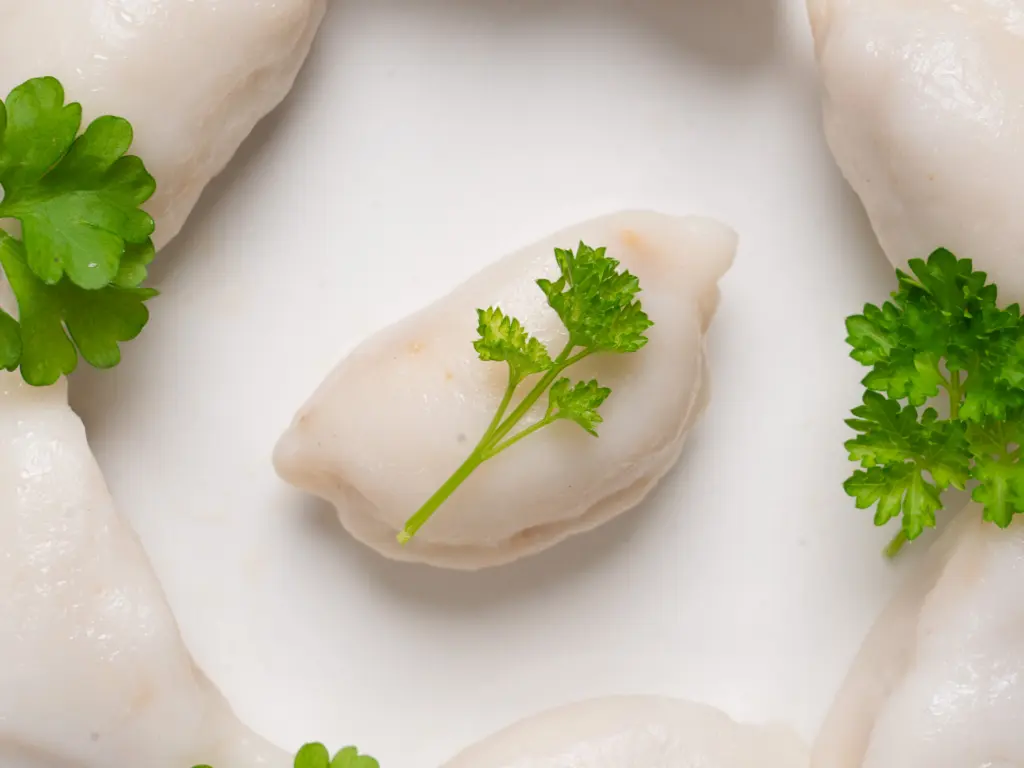
Korean Holiday Food, Jeon
Koreans eat jeon (Korean pancakes) besides rice cake during holidays. Instead of making just one, they usually fry 3 to 6 pieces to create a jeon assortment. This is the recipe for a Korean pancake set (modeum jeon).
Savory Korean Pancake Set: Modeum Jeon for Lunar new year
Kitchen Guide for Chuseok Tteok
Get Ingredients on Amazon
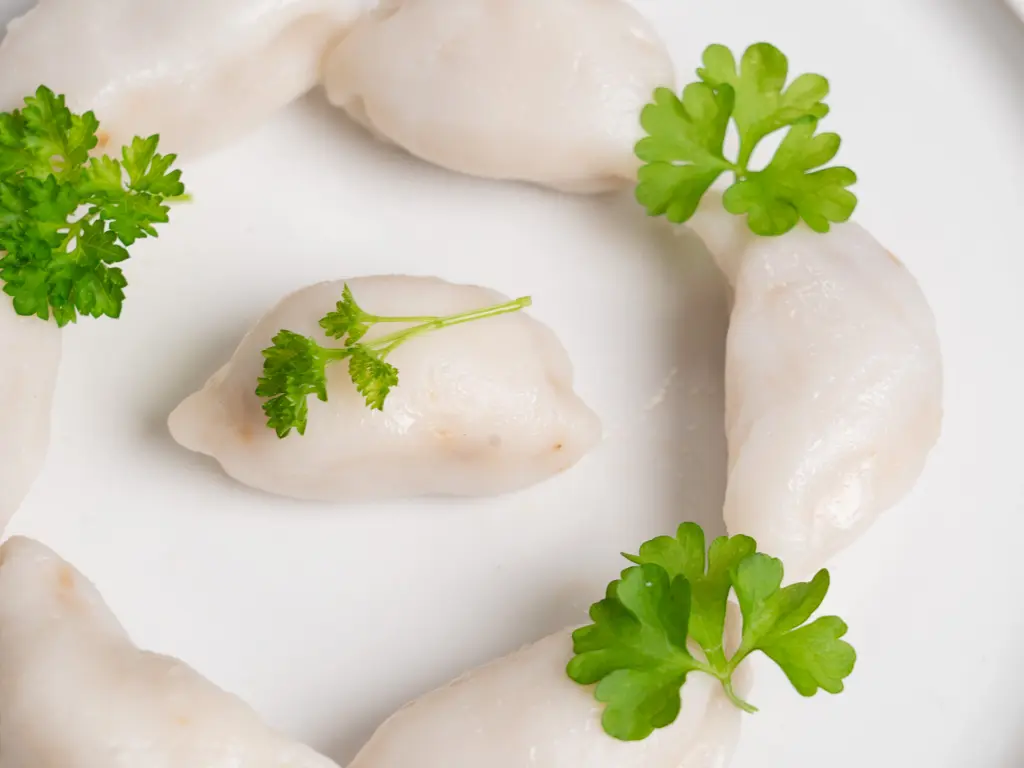
Disclosure: Blonde Kimchi is part of the Amazon Services LLC Associates Program, an affiliate advertising program that allows websites to earn advertising fees by linking to Amazon.com and promoting products.
FAQ about Songpyeon
Why do Koreans eat songpyeon on Chuseok?
Koreans eat songpyeon, a half-moon-shaped rice cake, during Chuseok (Korean Thanksgiving) as a symbol of gratitude and good fortune. Families gather to make and steam the rice cake together, and it represents hopes for a good harvest and blessings for the future.
What is the Korean rice cake holiday?
The main rice cake holiday is Chuseok, Korea’s harvest festival. On this day, families celebrate with traditional foods such as songpyun rice cake, freshly harvested fruits, and jeon (Korean pancakes).
Is rice cake and tteokbokki the same thing?
Not exactly. Tteok is the general term for Korean rice cakes, made from steamed rice flour. Ttekbokki is a popular spicy street food made with cylinder-shaped rice cakes stir-fried in gochujang (Korean chili paste) sauce.
Is songpyeon like mochi?
Songpyeon is a traditional Korean rice cake made from rice flour dough filled with sweet fillings like sesame seeds, chestnuts, or red beans. It is most famously eaten during Chuseok, steamed over pine needles to add fragrance and prevent sticking.
What is songpyeon filled with?
Common fillings include sesame seeds with sugar and salt, chestnuts, red beans, mung beans, or even sweet pumpkin. The sesame filling (toasted sesame seeds mixed with sugar and a touch of salt) is the most classic and widely loved.
Is songpyeon gluten free?
Yes. Songpyeon is made from rice flour, which is naturally gluten-free. However, if you are very sensitive, always check the rice flour packaging to ensure it is processed in a gluten-free facility.
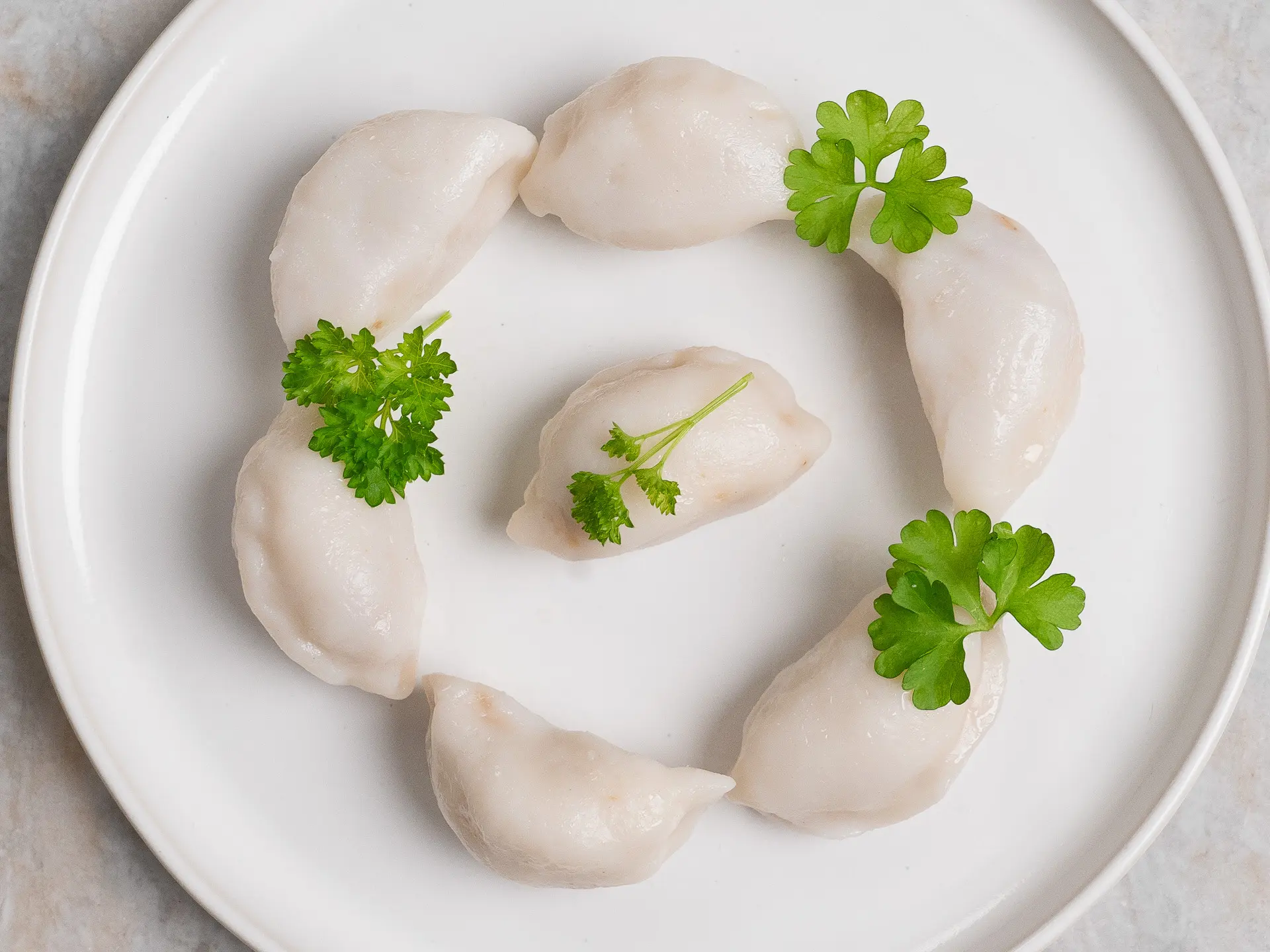
Chuseok Tteok: Easy Songpyeon Korean Rice Cake
Equipment
Ingredients
- 100 g wet rice flour (or just rice flour, but you can add a little bit more water)
Salt Water
- 1 tsp salt
- 200 ml hot water
Filling
- 4 tbsp roasted sesame seeds
- 2/3 tbsp brown sugar
- 2 pinches salt
- 1/3 tbsp water
Last Touch
- 2 tbsp sesame oil
Instructions
- Make the dough: Mix the salted water into the rice flour. Start with a little hot water, then add more little by little. I used 108g of salt water. If the dough is too wet, add a little more rice flour.
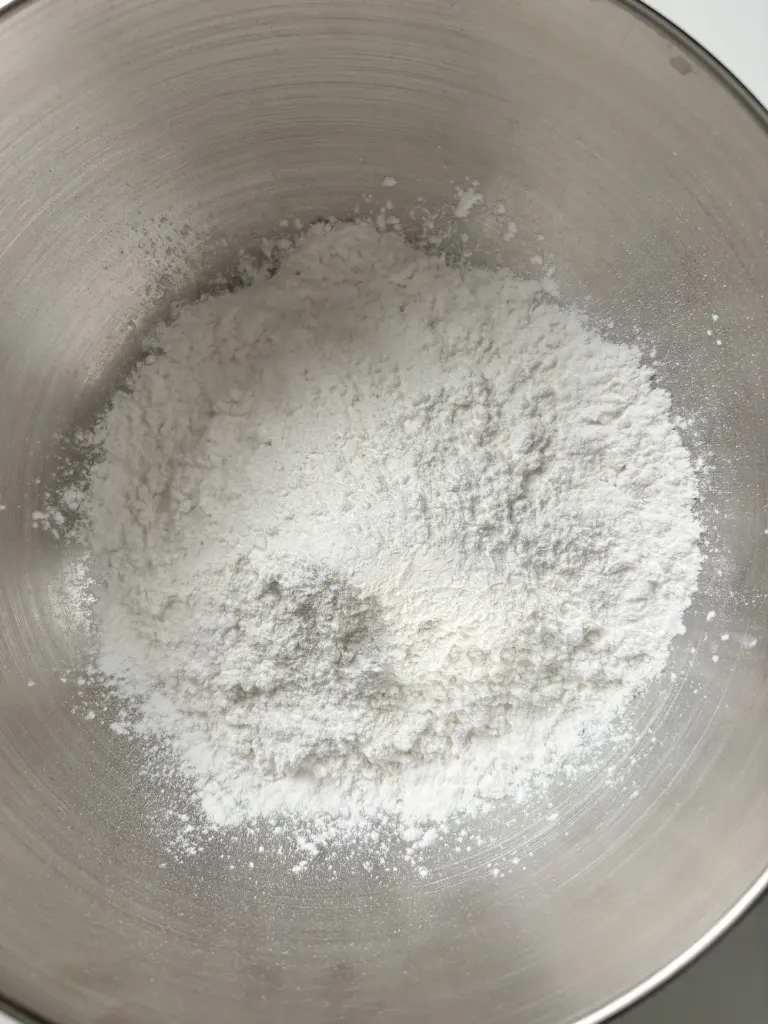
- The dough is ready when it comes together smoothly and does not crumble or stick to your hands. You can add more water or more rice flour as needed.
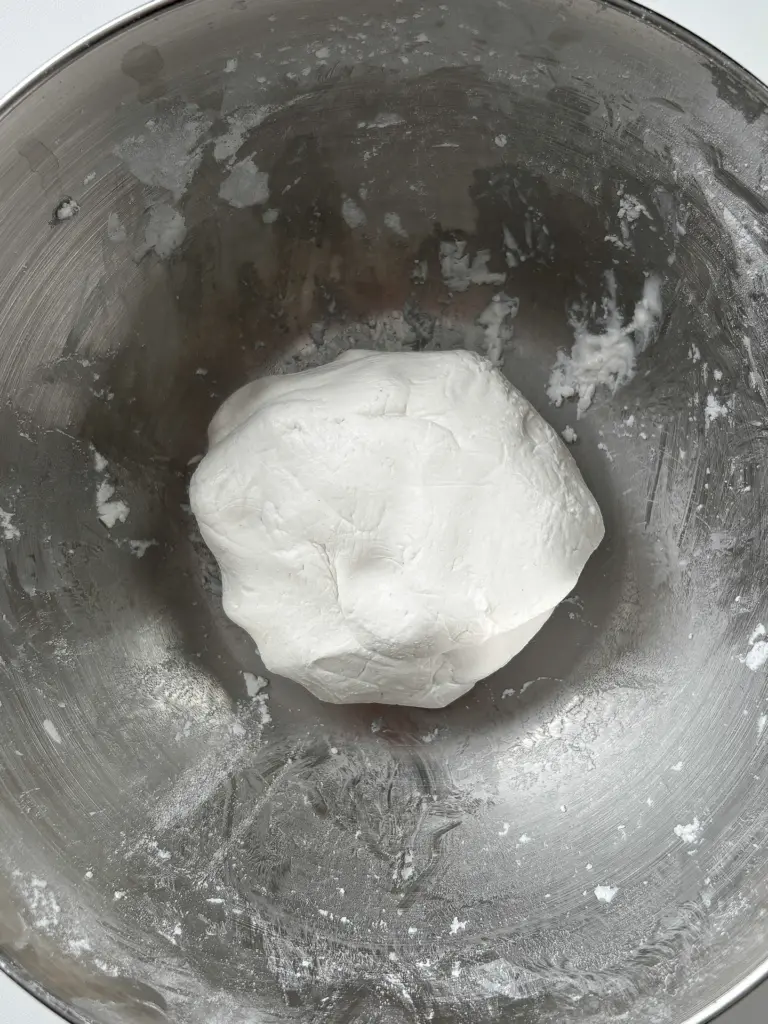
- Place the dough in a plastic bag and let it rest for about 30 minutes.
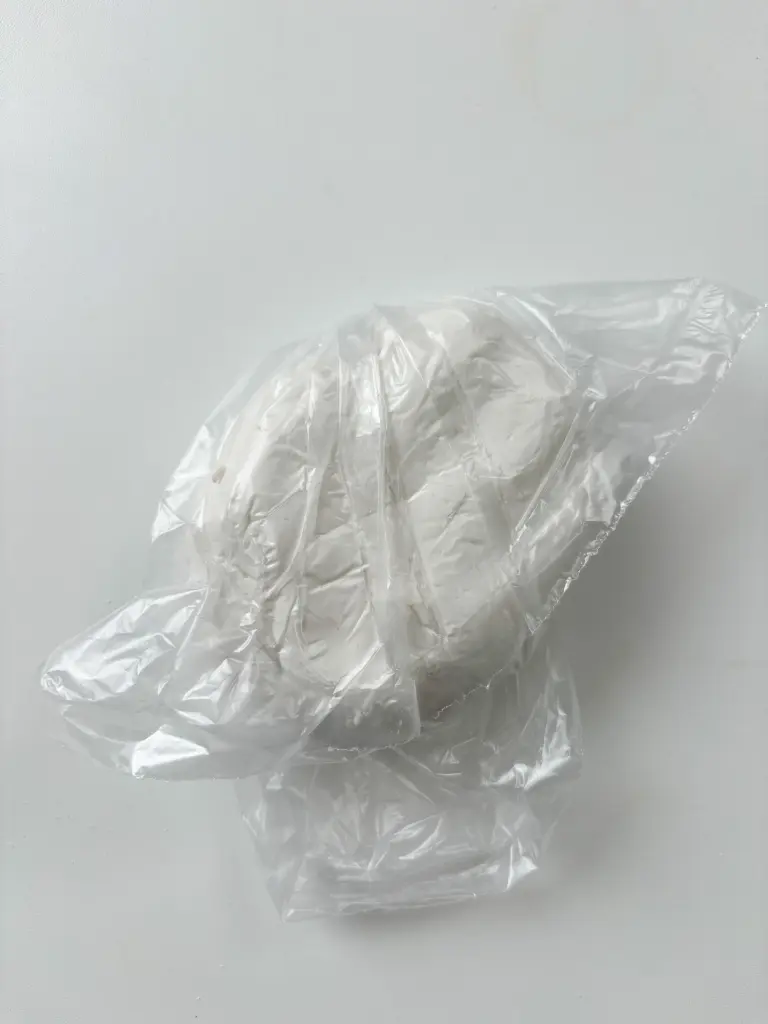
- Prepare the filling: Grind roasted sesame seeds with brown sugar and a pinch of salt until well mixed. Add 1/3 tbsp water to help bind the mixture.
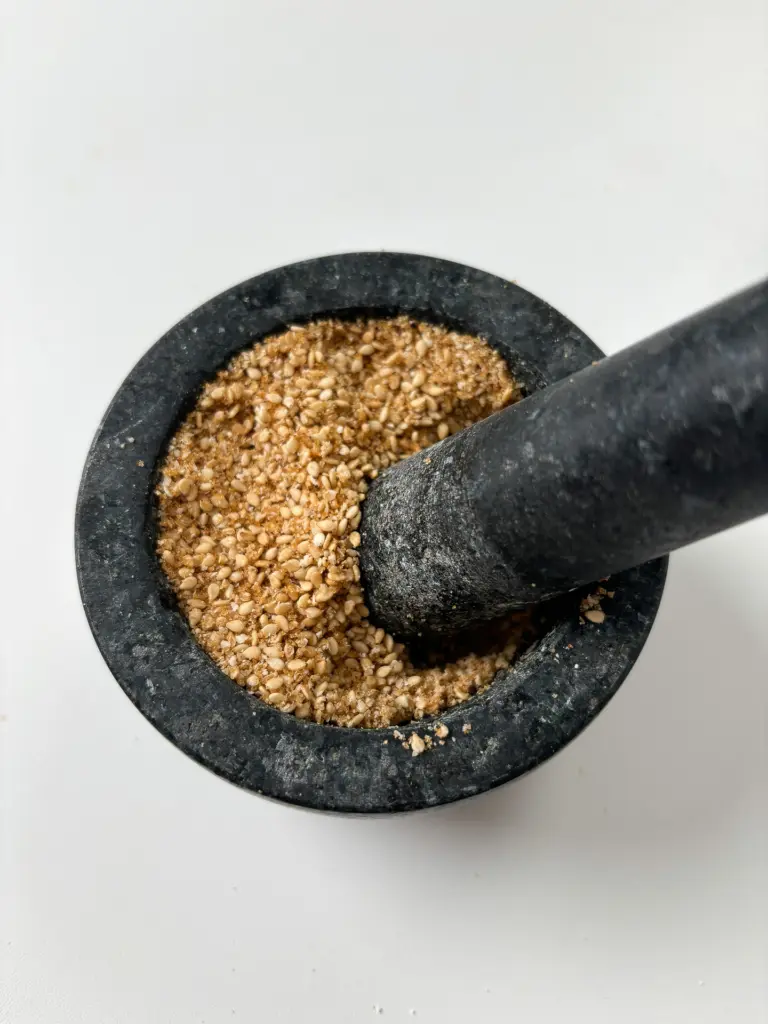
- Shape the rice cakes: Take a small piece of dough, roll it into a ball, then press it flat with a small dip in the center.
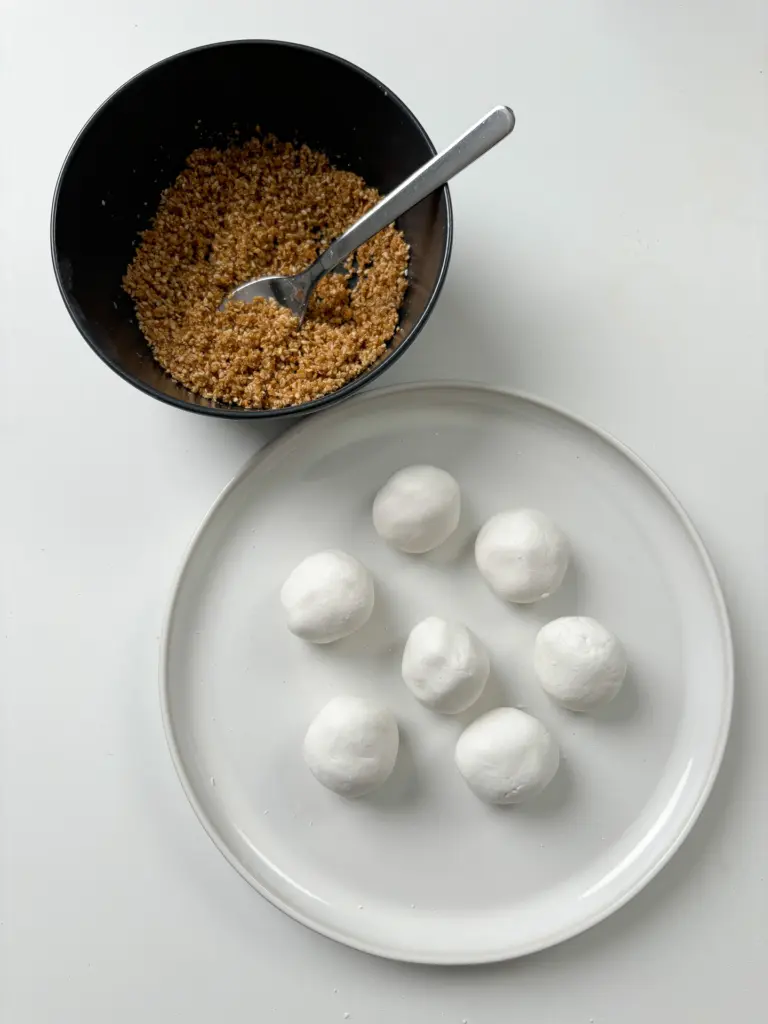
- Place 1 tsp sesame filling inside, close it carefully, roll it into a ball again.
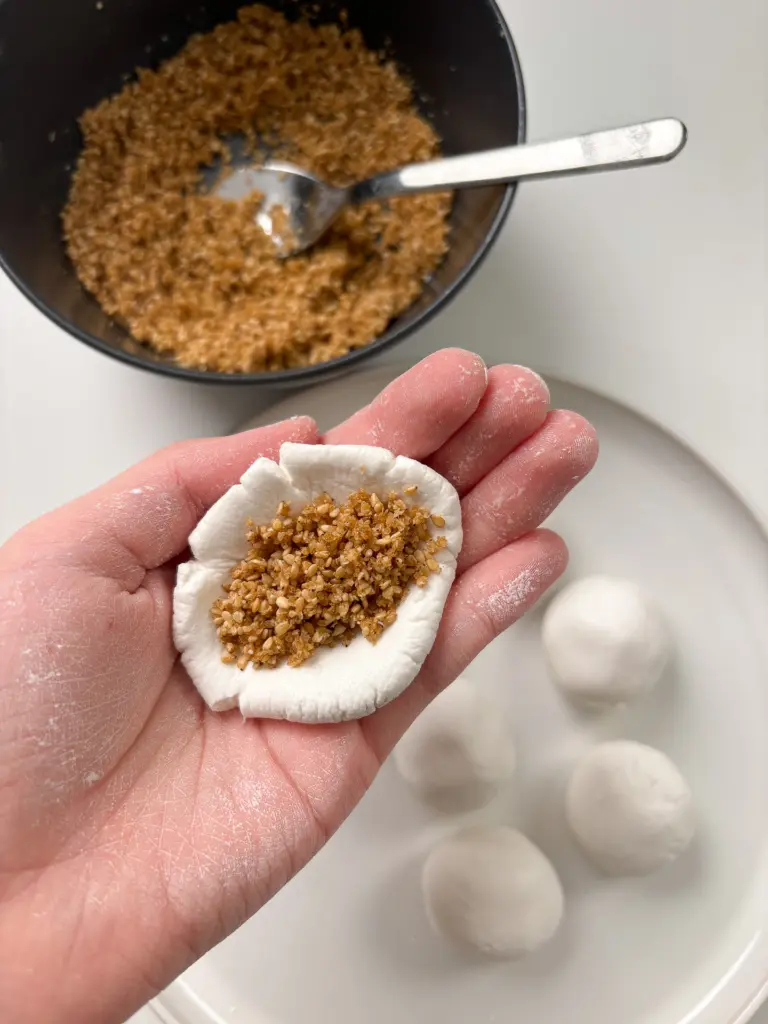
- Then pinch one side to form a half-moon shape.
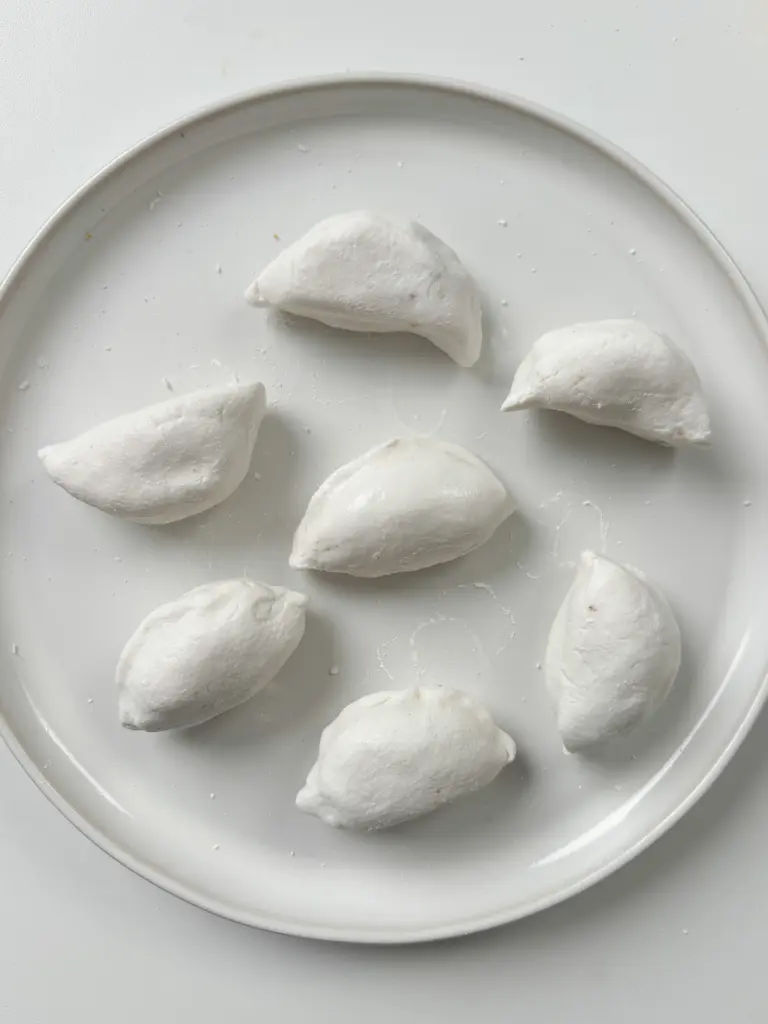
Steam the songpyeon
- Boil water in a steamer, line it with a cloth (so they don’t stick), and place the songpyeon without touching each other.
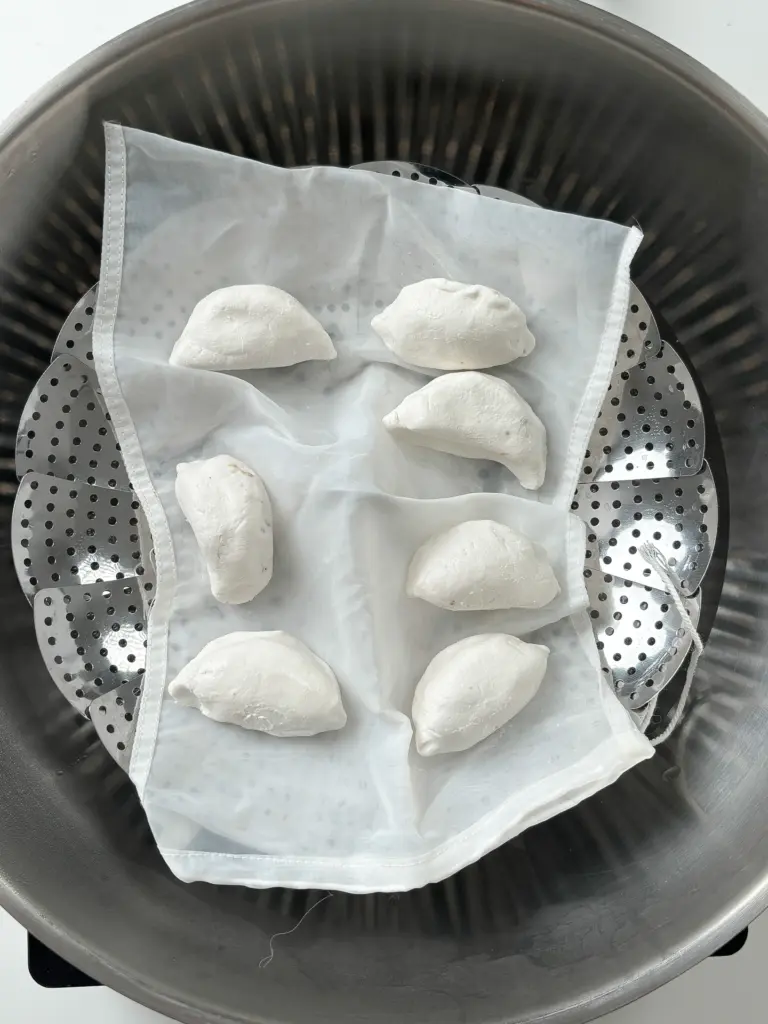
- If no cloth is available, brush sesame oil on the steamer and lay plenty of pine needles. If you don’t have pine needles, rosemary or thyme works as a substitute. Cabbage leaves also work as a base.
- Cover with a lid and steam for 20 minutes
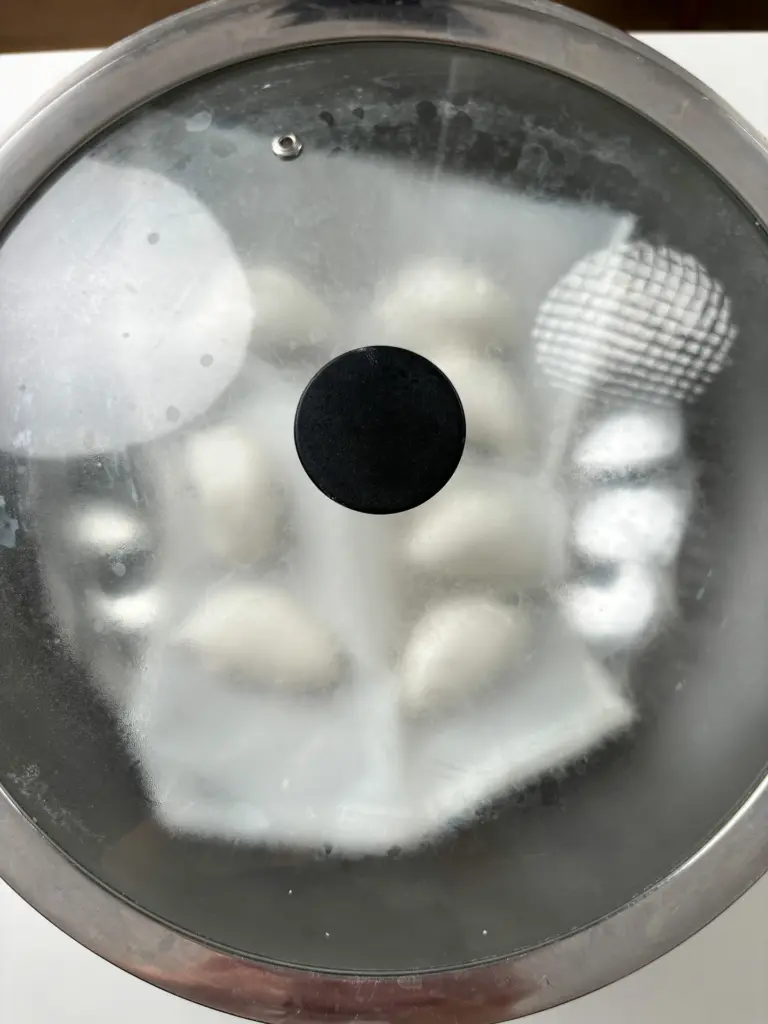
- , until the rice cakes turn slightly translucent.
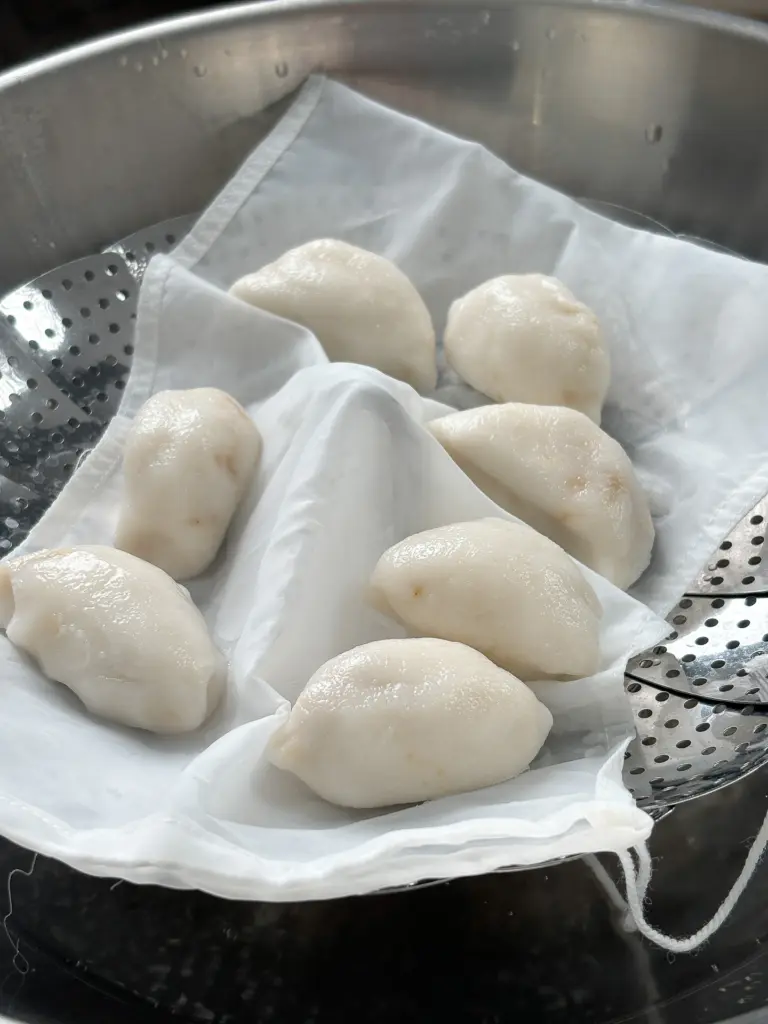
- Finish: Rinse the steamed songpyeon in cold water and coat lightly with sesame oil to prevent sticking.
